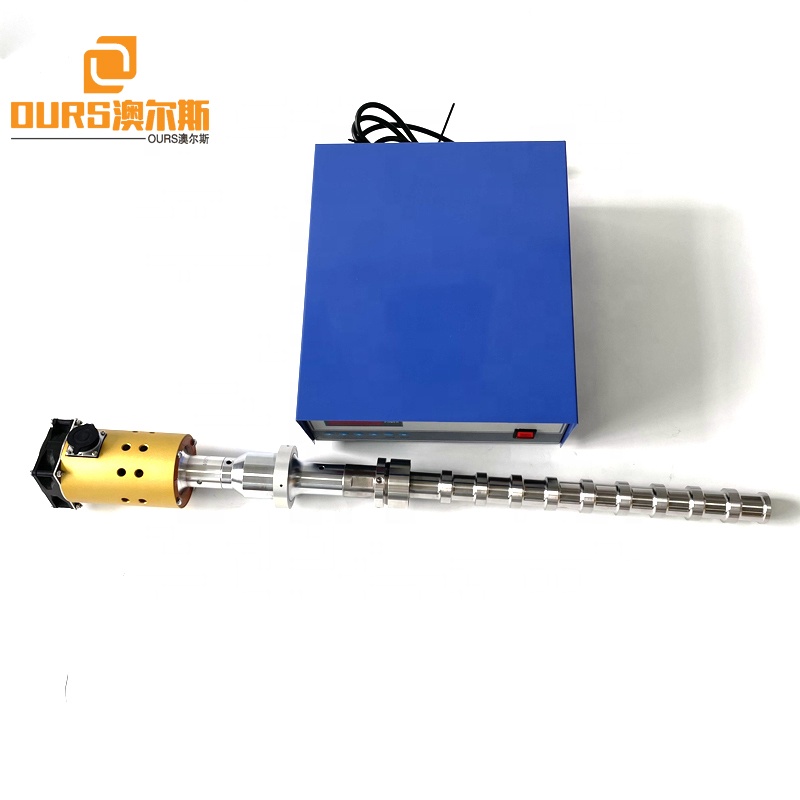
1-9 Sets
$2,600.00
≥10 Sets
$2,200.00

OURS Sonics manufactures the most technologically advanced and reliable ultrasonic processors in the industry for applications such as: dispersion of nanoparticles, nanotubes and Graphene; cell lysing and cell disruption; sample prep; ChIP assay; homogenization; extraction; atomization; and more.
Ultrasonic liquid processing is a highly valuable methodology in the laboratory. High intensity (20 kHz range) ultrasonic generation is sufficiently powerful to achieve useful liquid processing in a wide variety of applications. Everything from lyses of E. coli cells to spot cleaning of dirty lab ware can be performed easily, quickly and reproducibly.
In liquid, the rapid (i.e., 20 KHz) vibration of the horn probe tip causes cavitations, the formation and violent collapse of microscopic bubbles.
The collapse of the thousands of cavitations bubbles releases tremendous energy into the liquid form of shock waves.
Objects and surfaces that are within or near the cavitations field are “processed” by the released energy.
The choices of a generator (and transducer) and horns/probes are matched to the volume, viscosity and other parameters of the particular application.
Our Ultrasonic Generator is highly sophisticated electronic device that automatically adjust the power level to meet the level of resistance produced by the specific application. Transducers utilize carefully selected piezo-electric crystals to transform the electrical signal to mechanical vibration. The Horns/Probes are crafted from high quality titanium or aluminum.
US equipment | Frequency (KHz) | Ultrasound Output(W) | Total Length (mm) | Diameter (mm) | Static Capacity (pF±10%) |
ARS-HLCSB-1000
| 15-28 | 1000
| 500
| Φ50-55
| 68000
|
ARS-HLCSB-1500
| 15-28
| 1500
| 850 | Φ50-55
| 68000
|
ARS-HLCSB-2000
| 15-28
| 2000
| 1100 | Φ50-55
| 132000
|
Application of ultrasonic vibrating rod in cleaning:
Due to the unique round tube design characteristics, the ultrasonic vibrating rod is especially suitable for cleaning all kinds of pipelines. The principle is to convert electrical energy into ultrasonic energy and transfer it to scale, water, and the inner wall of the pipeline according to its own rules, making it very large energy of. The oscillating wave generated by the ultrasonic wave in the transmission process causes the scale, water, and the inner wall of the pipe to resonate. Due to the different oscillation frequencies of the scale, water, and the inner wall of the pipe, the water molecules in the pipe collide violently, generating a strong impact force and impacting the heat exchange surface. The upper scale layer makes it crisp, peeled, peeled off, crushed, and discharged along with the sewage of the equipment, so as to realize the thorough cleaning of the inner wall of the pipe by the ultrasonic vibrating rod. In addition, the ultrasonic vibrating rod can also be used for tank cleaning, and can be freely placed in any position of the cleaning tank. It is very flexible and convenient to use, and it occupies a small volume and does not leave dead corners for cleaning.
Application of ultrasonic vibrating rod in Chinese medicine extraction:
The effective components of traditional Chinese medicine can be extracted by using ultrasonic vibrating rod. First, add the extraction solvent to the container, crush or cut the Chinese medicinal materials into granules as needed, and put them into the extraction solvent; turn on the ultrasonic generator, install the ultrasonic vibrating rod on the top of the extraction tank, and send ultrasonic waves to the extraction solvent. The'cavitation effect' and mechanical action produced in the extraction solvent can effectively break the cell walls of the medicinal materials on the one hand, so that the active ingredients are in a free state and dissolve into the extraction solvent, and on the other hand, it can accelerate the molecular movement of the extraction solvent to make the extraction solvent Quickly contact with the active ingredients in the medicinal materials, fusing and mixing with each other.
The best temperature for extracting medicinal materials with ultrasonic vibrating rod is 40-60 degrees Celsius, so there is no need to equip a boiler to provide steam heating, which is helpful to save energy and improve environmental pollution. More importantly, it has a protective effect on the active ingredients in medicinal materials that are unstable, easily hydrolyzed or oxidized when exposed to heat. Ultrasonic vibrating rods generally run for about 30 minutes to get the best results. The extraction efficiency is greatly improved compared with traditional processes, and it is not restricted by the nature and molecular weight of the Chinese medicinal materials. It is suitable for most types of Chinese medicinal materials and various ingredients. Extraction (including liquid-liquid extraction and solid-liquid extraction). Therefore, the use of ultrasonic vibrating rods for Chinese medicine extraction has been increasingly adopted by the majority of pharmaceutical companies.
Application of Ultrasonic Vibrator in Accelerating Chemical Reaction
The front end of the transmitter head of the ultrasonic vibrating rod tool head is close to the outer wall of the kettle or extends into the kettle cavity of the kettle body. The ultrasonic transducer can send ultrasonic waves to the chemical reactants in the kettle cavity, and the liquid to be processed is due to the ultrasonic wave. Cavitation can cause changes in the activity of the reaction system, destroy the solvent structure of the chemical reactants in the tank cavity, generate instantaneous high temperature and high pressure enough to initiate chemical reactions, form local high-energy centers, and promote the smooth progress of chemical reactions. This is the use of ultrasound The vibrator is the main factor for the catalytic chemical reaction.
The secondary effects of ultrasound, such as mechanical shock, emulsification, diffusion, crushing, etc., are conducive to the full mixing of the reactants. The ultrasonic vibrating rod adopts a high-power energy-concentrating transducer, which can make the substance perform violent forced motion and accelerate The transfer and diffusion of substances can replace traditional mechanical stirring. Of course, it is better to accelerate the reaction when it is used with an electric stirrer in practical applications.
Application of ultrasonic vibrating rod in scale prevention:
Let's take the heat exchanger as an example. The ultrasonic vibrating rod is generally installed at the liquid inlet of the heat exchanger, using flange connection and control valve control, so that the ultrasonic equipment can be overhauled and maintained without stopping the production. The main principle is that ultrasonic waves transfer and generate energy due to resonance during the transmission process. Material molecules such as scale, water, and metal heat exchange surfaces obtain energy during the vibration process. The water in the heat exchange tube generates vibration and fierce collision while obtaining energy. , So that the unstable water molecules containing various inorganic salts produce countless cavitation bubbles (cavitation) to form water molecule cavitation cavities. When these bubbles expand rapidly and suddenly close, they produce local impacts of thousands of atmospheres, high-speed jets with a speed of up to 400km/h and high energy above 5000k. These energy destroy the combination of positive and negative ions and acid radicals and destroy the formation of scale. Conditions to achieve anti-scaling.
Application of ultrasonic vibrating rod in water treatment:
Ultrasonic vibrating rod energy-concentrating ultrasonic probe concentrates energy and can obtain strong sound intensity on the end face of ultrasonic radiation. Due to the energy-gathering effect of the horn, the sound energy density is greatly improved; the response can be accurately designed according to the sound energy density The transmitter end face of the probe is generally designed to be detachable, so that a probe with a suitable end face size can be selected at any time according to the required sound intensity. At the same time, when the probe is severely corroded by cavitation, you only need to replace the end instead of the price. Expensive whole vibrator. Ultrasonic vibrating rods can be used to treat a variety of difficult-to-degrade organic wastewater, and have been used to contain monocyclic aromatic compounds, polycyclic aromatic hydrocarbons, phenols, chlorinated hydrocarbons, chlorinated hydrocarbons, organic acids, dyes, alcohols, ketones, etc. Research on wastewater treatment and achieved good results. In the actual industrial wastewater, this equipment has been used to treat papermaking wastewater, printing and dyeing wastewater, tannery wastewater, coking wastewater, pharmaceutical wastewater, landfill leachate, etc., and has achieved good results.
In addition, in some landscape lakes and rivers, ultrasonic vibrating rods can also be used to kill and inhibit algae. The mechanical effect, cavitation effect, thermal effect and acoustic current effect of ultrasonic waves cause the rupture of algae cells and the rupture of chemical bonds in the material molecules to act on the outer wall of the algae and cause it to rupture and die, so as to achieve the algae vacuole promotion and cell death or growth. Inhibition and other effects cause a series of biological effects. Cavitation causes the microbubbles in the liquid to expand rapidly and then suddenly close, generating shock waves and jets to achieve the goal of eliminating algae and balancing the water environment. Low-intensity ultrasound destroys the structure and function of phycobilisomes, interferes with the synthesis of chlorophyll, and achieves the purpose of inhibiting the growth of algae.



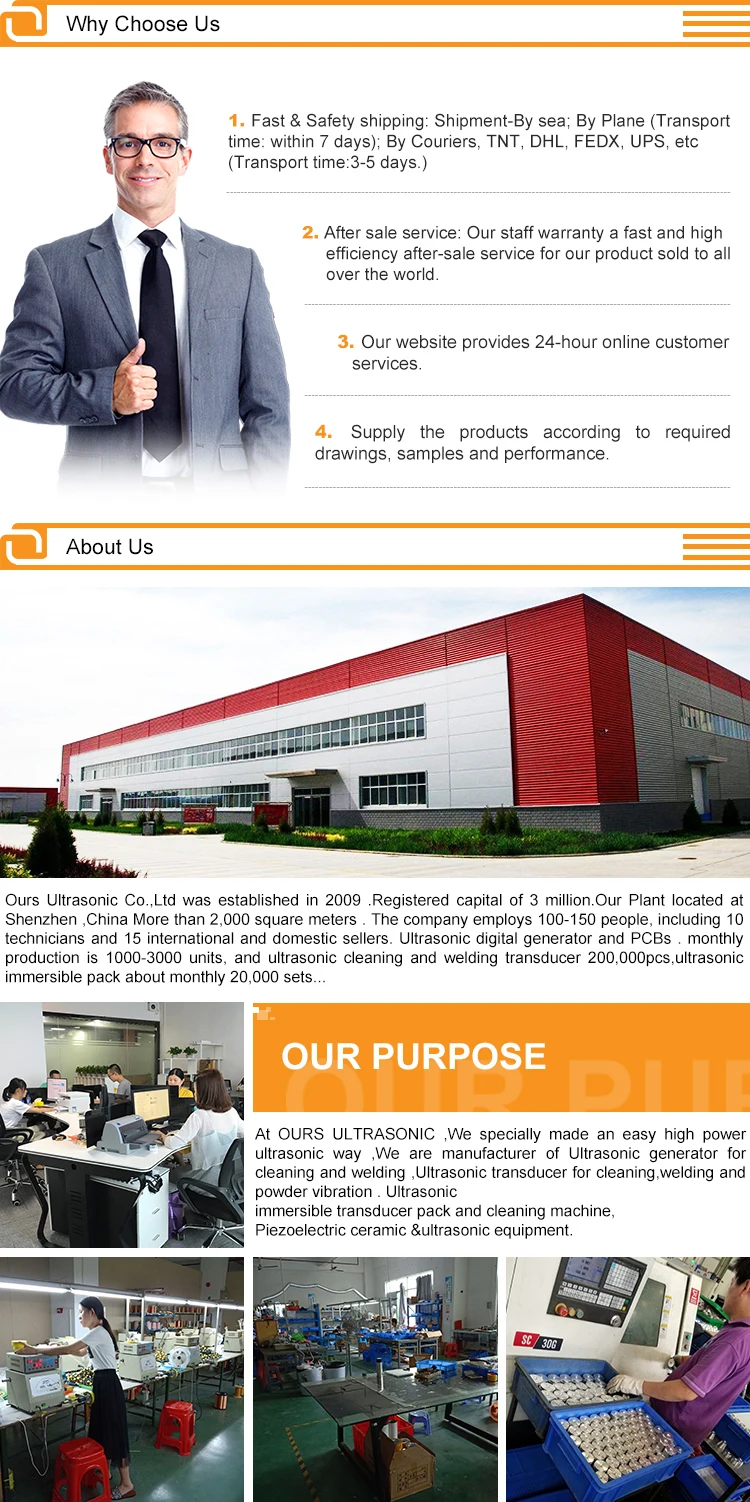
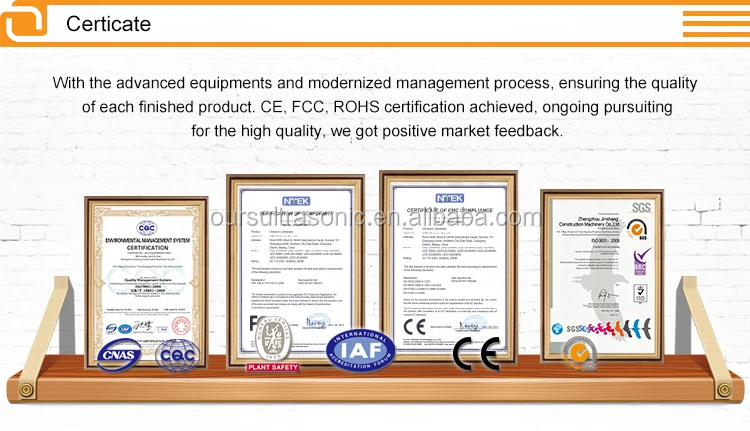



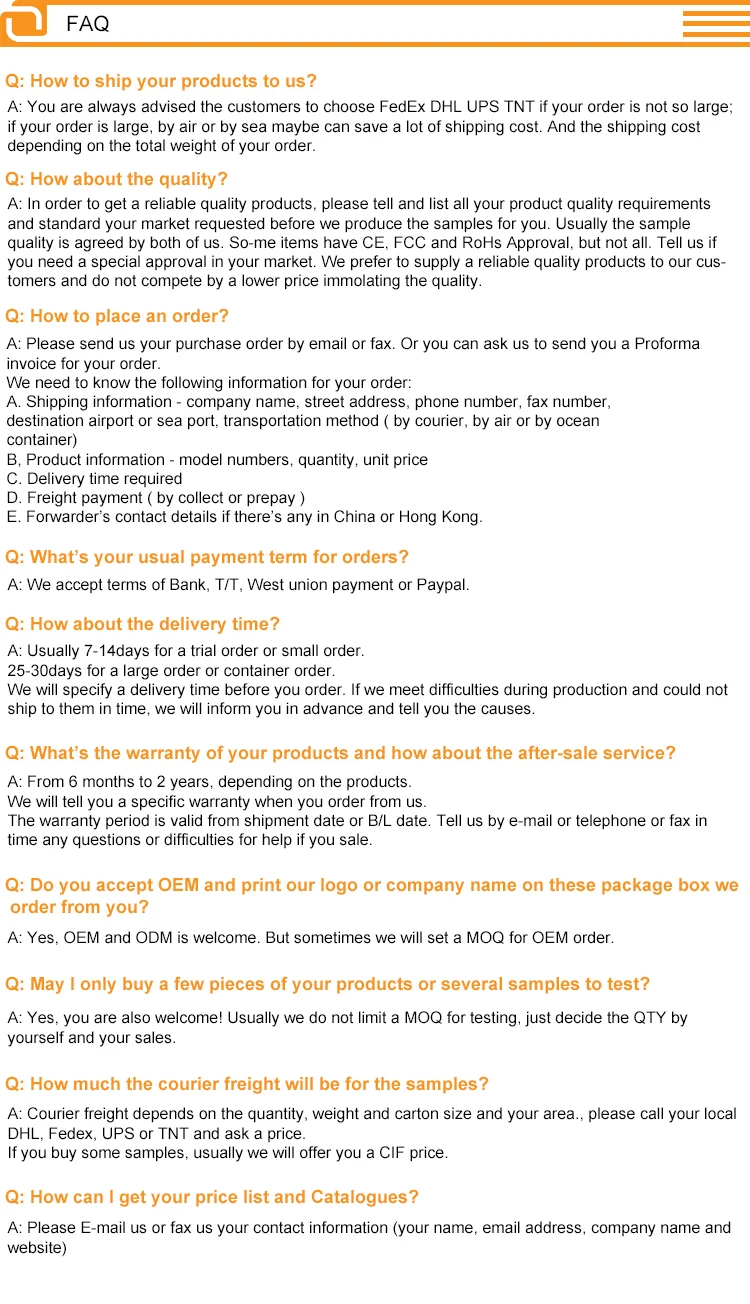
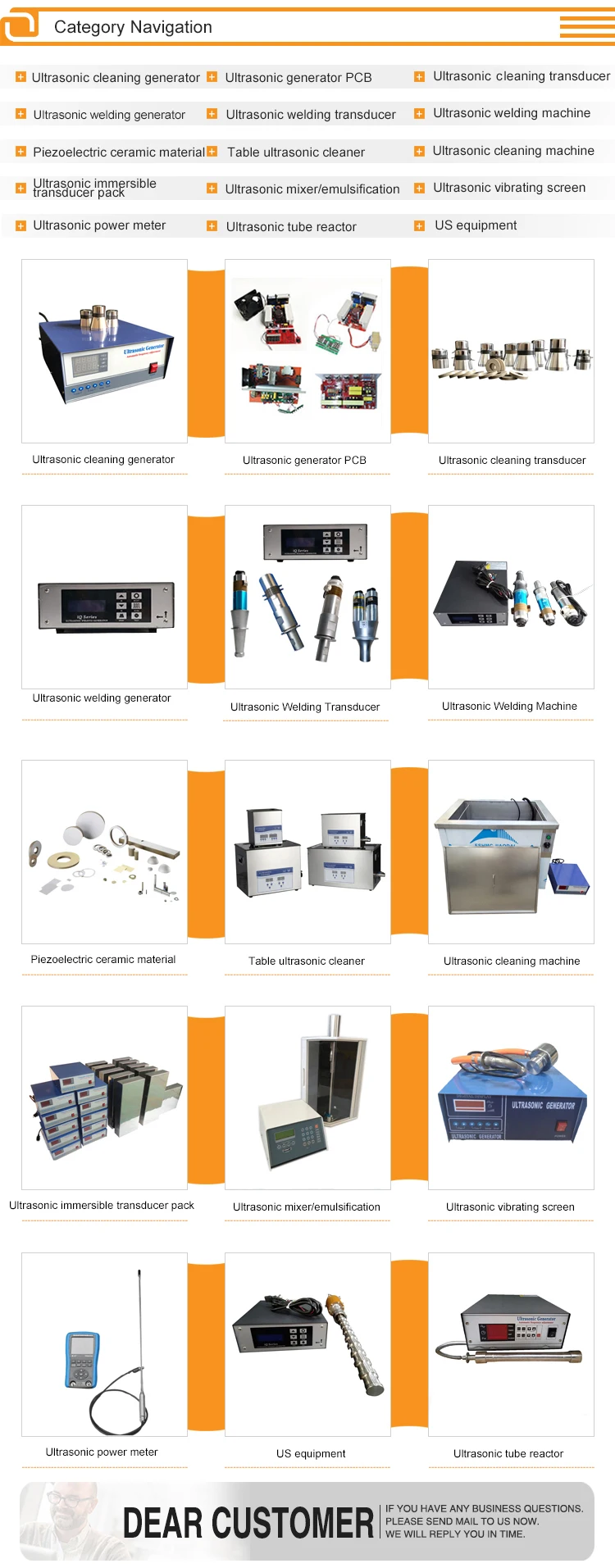
Scan the QR code with your phone, or visit the URL
- 506B,Dazhong industry park,sanhe ,DaLang street,longhua district,ShenZhen China
- 86-13662219669
- [email protected]